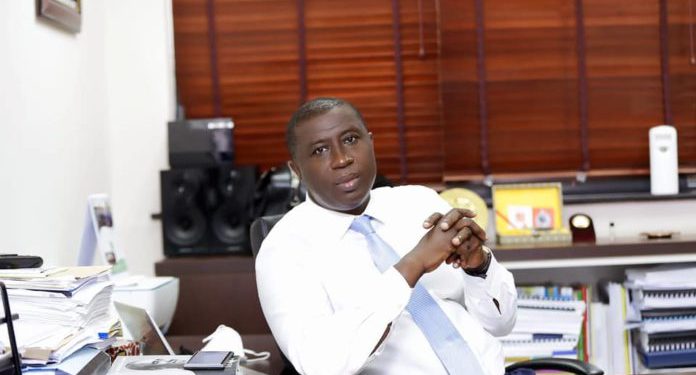adverts
The State of the Nation Address (SONA) delivered by President Nana Addo Dankwa Akufo-Addo on January 3, 2025, marked the culmination of his eight-year presidency, and it has ignited varied reactions across the political spectrum.
As the country bids farewell to his administration, many are reflecting on the successes and challenges that have shaped his tenure.
Among those offering their views is Patrick Yaw Boamah, the Member of Parliament for Okaikwei Central, who praised the President’s contributions and expressed confidence that his legacy would be judged by history.
adverts
In an exclusive interview with Citi News shortly after the President’s final SONA, Boamah acknowledged the mixed nature of Akufo-Addo’s time in office but emphasised that the long-term impact of his policies would be the true measure of his success.
“He’s done his best; posterity will judge him,” Boamah remarked.
He suggested that the full effects of the President’s leadership would only be clear as time passes, with future generations determining the lasting value of his policies and initiatives.
Boamah highlighted the President’s efforts in several key areas, including education reforms, infrastructure development, and his international diplomacy.
Despite the challenges faced during the COVID-19 pandemic and the subsequent economic difficulties, Boamah remained optimistic about Akufo-Addo’s legacy, believing that the foundations laid in his administration would eventually yield positive results for the nation.
However, not all voices in Parliament share this view. Deputy Minority Leader Emmanuel Armah-Kofi Buah sharply criticised the President’s leadership during his response to the SONA in Parliament on the same day.
The MP for Ellembelle lambasted the Akufo-Addo administration for failing to fulfil key campaign promises, accusing the government of neglecting critical national issues and mismanaging public resources.
One of Armah-Kofi Buah’s major points of contention was the unfulfilled promise of the National Cathedral.
The President had pledged to build a grand cathedral in the capital as a testament to the nation’s faith, but the project has been marred by delays and controversy, with critics questioning its prioritisation amidst other pressing national needs.
“You left out the account of your promise to God to build him a cathedral. But I will leave that between you and God,” Armah-Kofi Buah remarked, underscoring the growing frustration with the unfulfilled promises.
The Deputy Minority Leader also raised concerns over the government’s handling of the economy, which has struggled with inflation, debt, and slow growth in recent years.
He pointed to allegations of corruption within the administration and the ongoing battle with illegal mining (galamsey), which continues to harm the environment and undermine efforts to regulate the mining sector.
Armah-Kofi Buah’s criticism painted a picture of an administration that had failed to live up to its promises, despite significant public support during Akufo-Addo’s first term.
Despite his sharp criticisms, Armah-Kofi Buah remained hopeful for Ghana’s future.
He voiced his belief that a new leadership under the National Democratic Congress (NDC) and its presidential candidate, John Dramani Mahama, would bring the change necessary to address the country’s challenges.
“Hope is on its way in President John Dramani Mahama and the NDC,” he declared, signalling the opposition’s readiness to offer an alternative vision for the country.
Boamah’s positive assessment of Akufo-Addo’s tenure contrasts sharply with Armah-Kofi Buah’s damning critique, highlighting the divide between the two major political parties in Ghana.


